Allertec is an antihistamine for systemic use for symptomatic therapy:
- nasal and ocular symptoms of seasonal and perennial allergic rhinitis;
- chronic idiopathic urticaria.
Composition
- active ingredient: cetirizine dihydrochloride;
- 1 film-coated tablet contains cetirizine dihydrochloride 10 mg;
- excipients: lactose monohydrate; microcrystalline cellulose; corn starch; povidone K-25; magnesium stearate; sodium starch glycolate (type C); colloidal anhydrous silicon dioxide; sodium lauryl sulfate;
- shell composition: hypromellose, macrogol 6000.
Contraindication
Hypersensitivity to the active substance or to any of the excipients included in the preparation, to hydroxyzine or to any piperazine derivative.
Severe renal impairment (creatinine clearance less than 10 ml/min).
Rare hereditary forms of galactose intolerance, the Lapp lactase deficiency or glucose-galactose malabsorption.
Adverse reactions
Clinical studies have shown that cetirizine at usual doses (10 mg per day) may cause adverse reactions from the central nervous system, drowsiness, fatigue, headache and dizziness. They are mild and transient.
In some cases, paradoxical excitation of the central nervous system was observed.
Although cetirizine is a selective H1-receptor antagonist and has virtually no anticholinergic activity, isolated cases of difficulty urinating, impaired accommodation of the eye, and dry mouth have been reported. Liver function abnormalities have also been observed: increased liver enzymes and increased bilirubin levels. In most cases, these symptoms resolved after discontinuation of cetirizine.
Method of application
Take orally, washing down the tablet with a glass of water. Swallow the tablets without chewing.
Children aged 6 to 12 years: 5 mg (½ tablet) 2 times a day.
Adults and children over 12 years of age: 10 mg (1 tablet) once a day.
Application features
When taken in therapeutic doses, no clinically significant interactions with alcohol were observed (at blood alcohol levels of 0.5 g/l), however, it is recommended to avoid simultaneous alcohol consumption.
Use during pregnancy or breastfeeding
Pregnancy.
The drug should be prescribed with caution to pregnant women only if, in the opinion of the physician, the benefit of use outweighs the potential risk to the fetus.
Breastfeeding period.
Cetirizine passes into breast milk in concentrations that are 25-90% of those in plasma, depending on the time elapsed after administration. Therefore, caution should be exercised when administering the drug to breastfeeding women.
Children
The drug should be prescribed to children over 6 years of age. The drug in the form of film-coated tablets is not recommended for use in children under 6 years of age, since this dosage form does not allow for the selection of the correct dose.
Ability to influence reaction speed when driving vehicles or other mechanisms
Objective studies using cetirizine have shown that at the usual dose (10 mg per day), the drug does not cause significant drowsiness or decreased psychophysical activity, so the effect on the ability to drive is insignificant.
Patients who plan to drive a car, operate moving machinery, or perform work requiring increased psycho-emotional stress should not exceed the usual daily dose; and they should take into account the possible reaction of the body to the drug. In sensitive patients, simultaneous administration of the drug with other agents that suppress the activity of the central nervous system may cause additional deterioration in concentration and decreased productivity.
Overdose
Symptoms.
Symptoms of cetirizine overdose are primarily associated with effects on the central nervous system or with manifestations that may resemble anticholinergic effects.
After a significant overdose (exceeding the usual daily dose by at least 5 times), confusion, diarrhea, dizziness, increased fatigue, headache, malaise, mydriasis, itching, restlessness, sedation, drowsiness, stupor, tachycardia, tremor and urinary retention were observed.
Treatment.
There is no specific antidote.
In case of overdose, it is necessary to rinse the stomach if no more than an hour has passed since the drug was taken, and to carry out symptomatic treatment.
Dialysis is not an effective method of removing cetirizine from the body.
Interaction with other medicinal products and other types of interactions
Pharmacokinetic interaction studies have been conducted with cetirizine and pseudoephedrine, cimetidine, ketoconazole, erythromycin, azithromycin; no pharmacokinetic interactions were observed. In a multiple-dose study of theophylline (400 mg once daily) and cetirizine, a slight (16%) decrease in cetirizine clearance was observed, while theophylline levels were not affected by co-administration of cetirizine.
Studies of cetirizine with cimetidine, glipizide, diazepam, and pseudoephedrine have not revealed evidence of adverse pharmacodynamic interactions.
Studies of cetirizine with azithromycin, erythromycin, ketoconazole, and theophylline have not revealed evidence of adverse clinical interactions. In addition, concomitant use of cetirizine with macrolides or ketoconazole has never resulted in clinically significant ECG changes.
In a multiple-dose study of ritonavir (600 mg twice daily) and cetirizine (10 mg daily), the duration of exposure to cetirizine increased by approximately 40%, while ritonavir exposure was slightly impaired (-11%) when co-administered with cetirizine.
Storage conditions
Store at a temperature not exceeding 25 °C in a place protected from moisture, light and out of the reach of children.

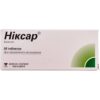


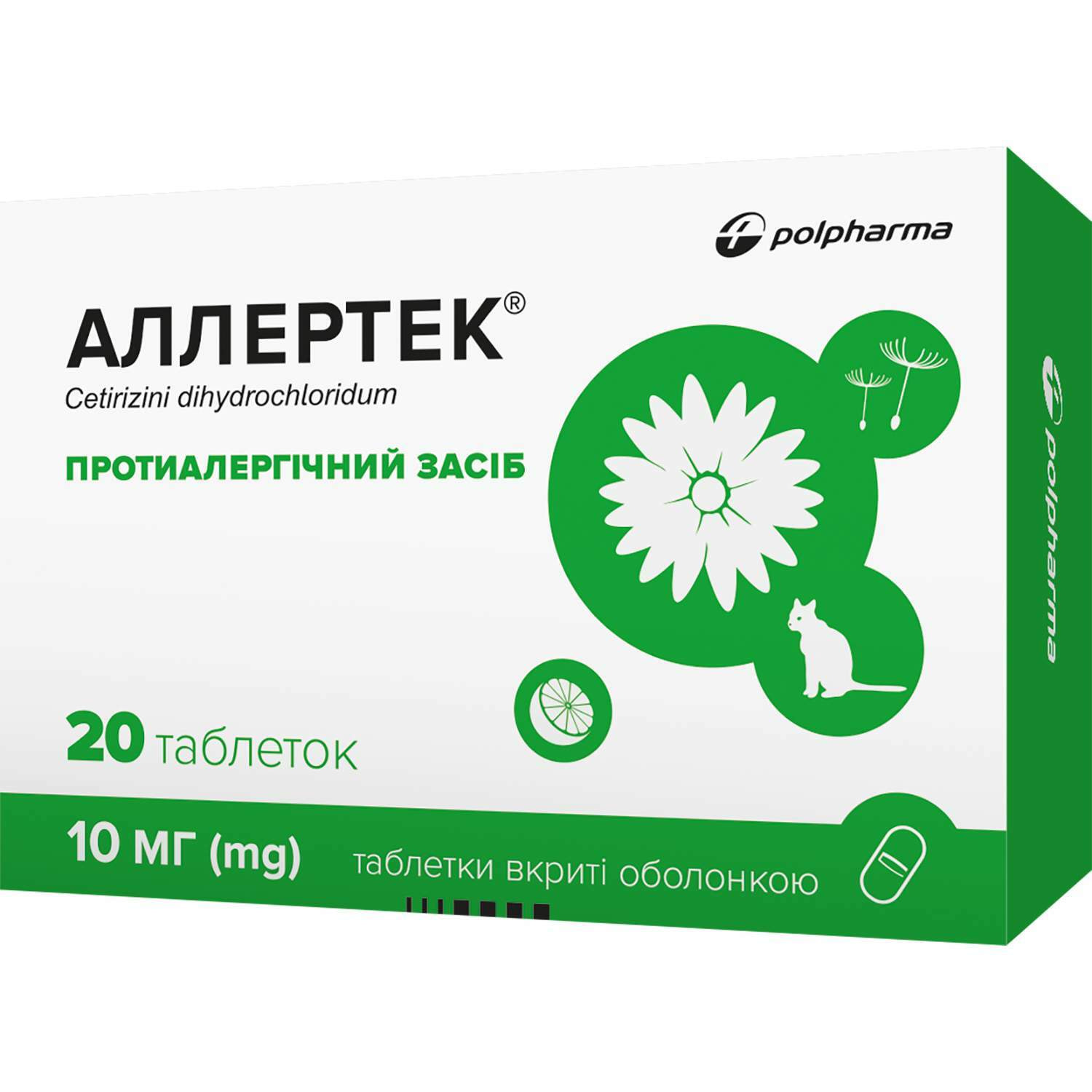

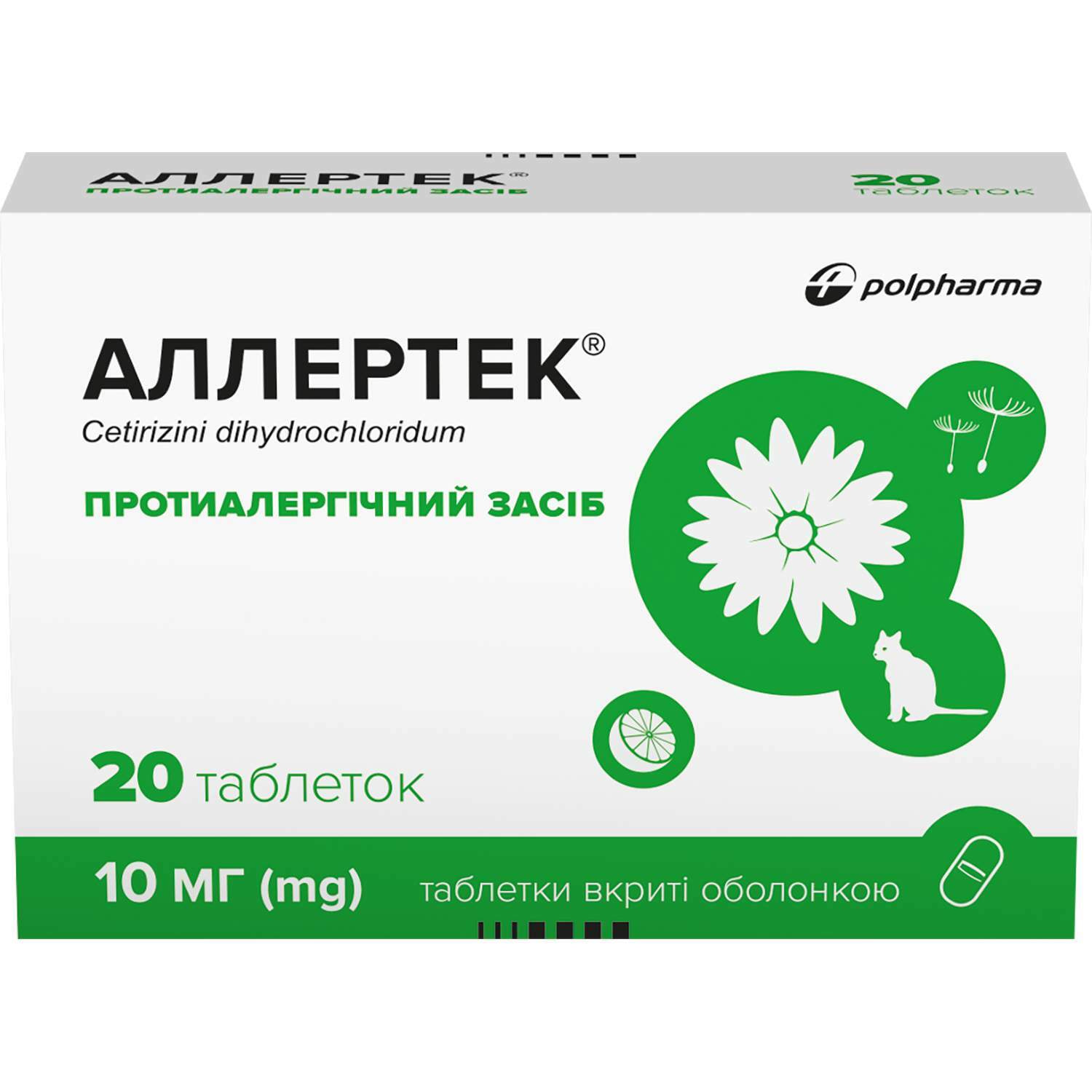

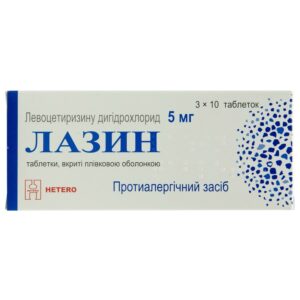
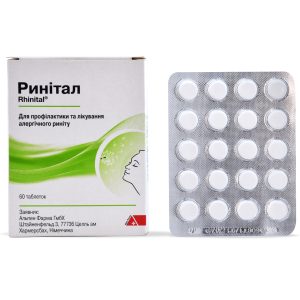

Reviews
There are no reviews yet.